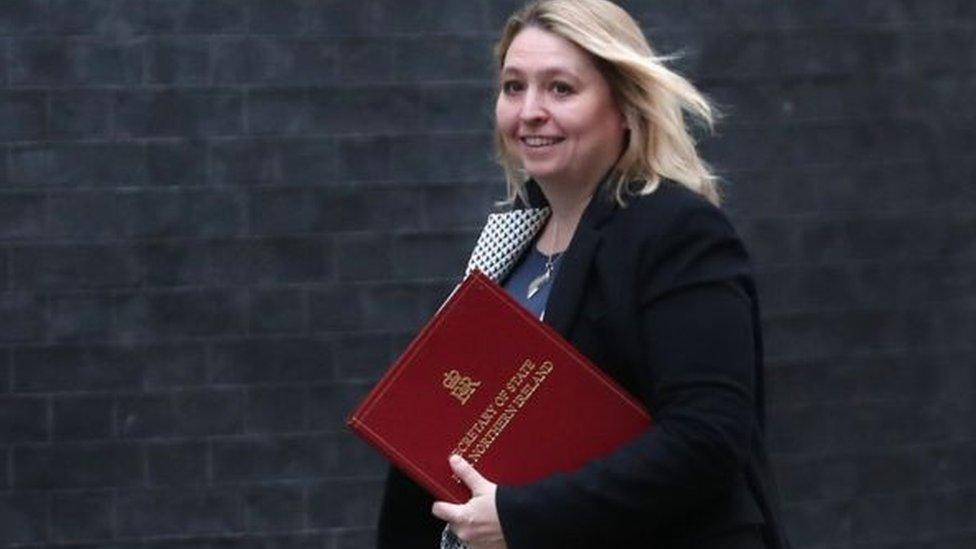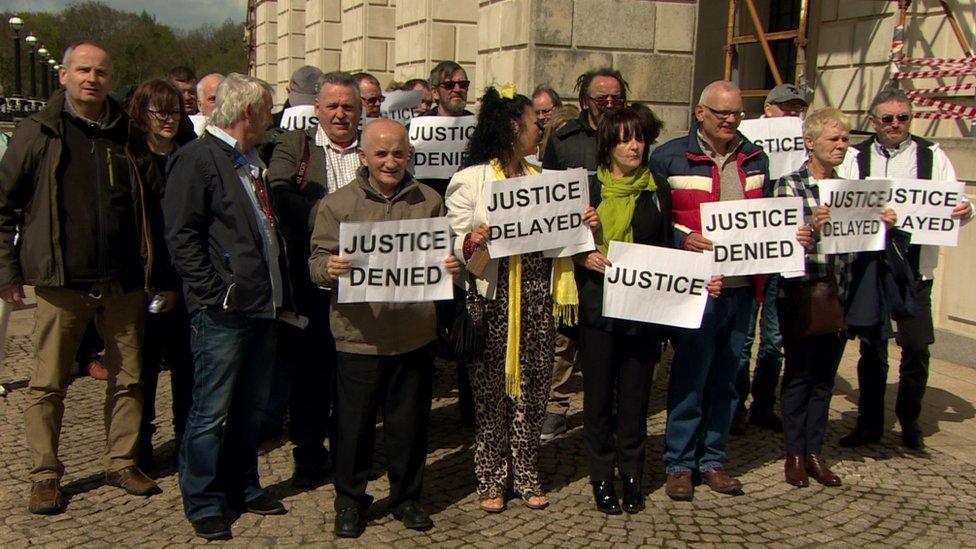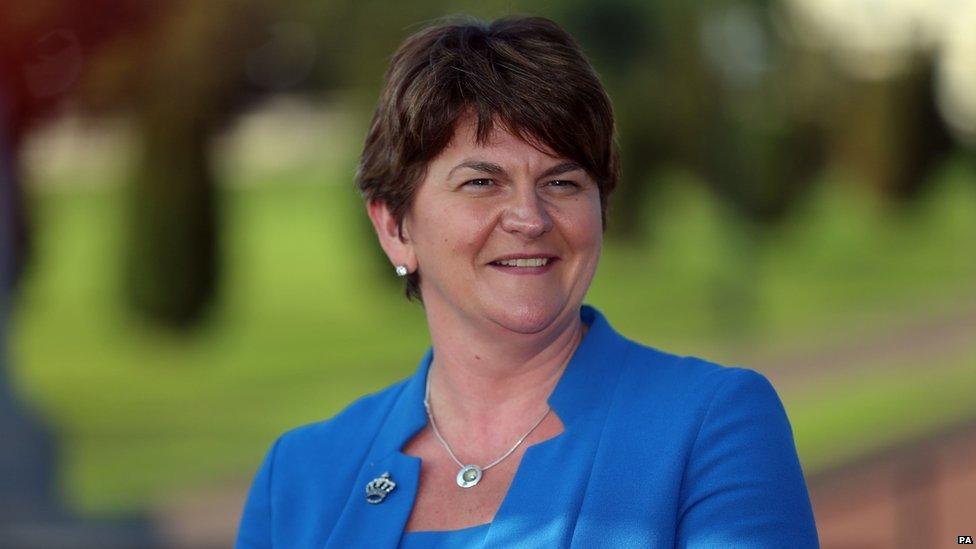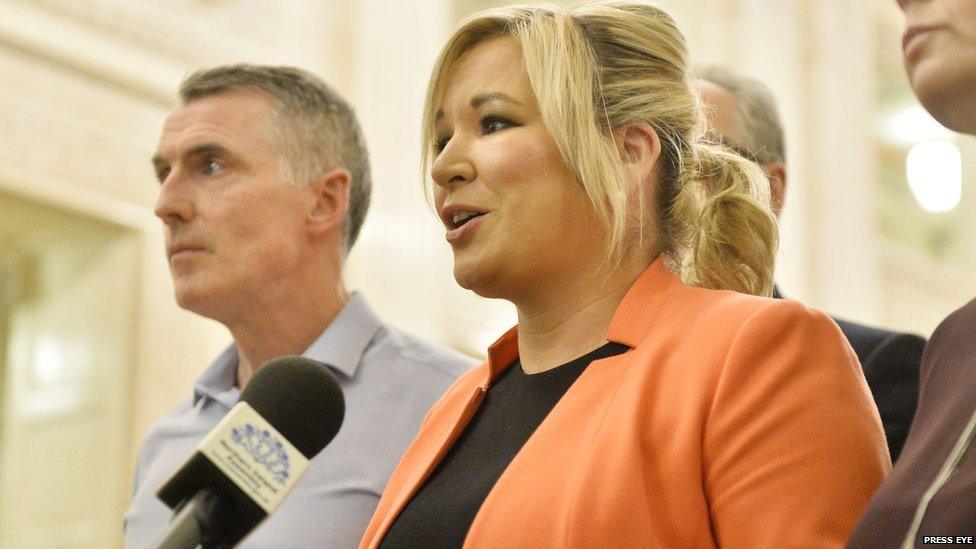Bradley's budget meets a parallel universe
- Published

Secretary of State Karen Bradley moved to introduce a budget due to the impasse at Stormont
So should we rejoice that Karen Bradley has at long last approved a budget, providing much needed certainty for harassed Northern Ireland civil servants?
Or should we lament this latest descent on what Mrs Bradley's predecessor, James Brokenshire, used to call 'a glide path towards direct rule'?
Surveying the differing reactions from the Stormont parties, you might assume that the details of the budget have driven them apart.
Proving the cynics wrong?
The DUP says the arrival of £410m of their Westminster deal money has proved the cynics wrong, while Sinn Féin insists the latest financial allocations are nothing more than a disappointing "stop gap" measure.
You can understand why some politicians object to aspects of the budget.
The DUP cash may be welcome, especially when it comes to capital expenditure. However, day-to-day revenue remains tight and domestic ratepayers won't be happy when they get their latest bills, complete with an above-inflation increase.

Historic abuse campaigners brought their protest to Stormont in April 2017
Victims of historic abuse will feel justifiably enraged that, once again, the financial redress scheme recommended by Sir Anthony Hart has not been resourced.
But is this what the DUP/Sinn Féin row is really about?
It's possible to imagine an alternative universe in which both parties did a deal in February and then rallied around Thursday's announcement as the best of a bad job in harsh economic times.
In that alternative universe, MLAs would not be looking at a pay cut in the coming weeks and the court judgment censuring Arlene Foster's blocking of legacy inquest funds would be a sidebar as the UK government would have already agreed to make those funds available.

A court judgement censured Arlene Foster's blocking of legacy inquest funds
Of course, that deal didn't happen, and the row over the budget appears to be a microcosm of the wider argument over the collapsed talks.
That argument will no doubt continue on Monday when Mrs Bradley is likely to accept the broad thrust of an independent report which recommended cutting MLA pay.
Watch out for the DUP attempting to turn the screw on Sinn Féin by insisting action should also be taken to cut the allowances given to their abstentionist MPs.
The war of words will no doubt be transferred across the Atlantic when some local politicians take part in the US St Patrick's Day festivities.

Sinn Féin seems likely to demand a greater role for the Dublin government
It isn't likely to diminish in intensity by the time commemorations take place of the 20th anniversary of the Good Friday Agreement in April.
The fact that the parties came so close to a deal last month proved wrong the theory that some politicians weren't interested in a deal until the implications of Brexit and even a future border poll become clear.
Collateral damage
But the DUP's decision that it could not sell a draft understanding which included an Irish Language Act has created a dynamic in which this week's budget appears collateral damage.
The DUP looks like it will increasingly look to Westminster, while Sinn Féin will renew its demands for a more formal role for Dublin in Northern Ireland's affairs.
When it comes to the Stormont talks the cynics seem to have been wrong but they might not have been wrong for long.